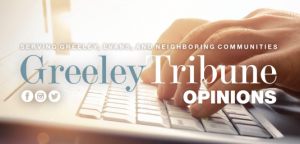TABOR pause would pay for road improvements, police and fire personnel
In November, the Town of Castle Rock will ask taxpayers to pause TABOR for 10 years. TABOR, known as the Taxpayer’s Bill of Rights, was approved in the 1990s, changing the state’s constitution to require all tax increases be approved by voters, limiting how much local and state government can spend.
Castle Rock Town Manager David Corliss said he has no problem with the part of TABOR that requires residents to approve tax increases. However, the restrictions and limits TABOR can put on a municipality to keep up with the cost of growth is a problem, he said.
TABOR is a state tax and expenditure limit that includes the following elements: It is a Colorado constitutional amendment; it restricts revenue or expenditure growth to the sum of inflation plus population change; and it requires voter approval to override the revenue or spending limits.
Colorado is the only state in the nation with TABOR.
Castle Rock Town Attorney Michael Hyman is no stranger to how TABOR has created controversy and issues for state and local municipalities trying to balance a budget. In the 1990s when TABOR was passed by voters, Hyman worked for the City of Aurora.
Click (HERE) to continue reading the rest of this story






